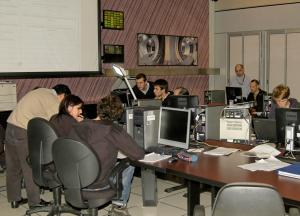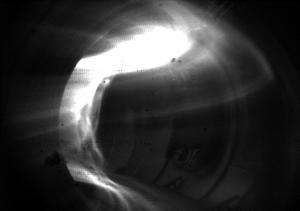Preparing for the future at Tore Supra
9 Apr 2010
-
Robert Arnoux
The challenges of fusion are many. One, however, holds the key to all others: the training of a new generation of fusion scientists who will take fusion to the threshold of industrial and commercial production.
Last month, as part of their Fusion Science Master's program, students from participating French universities got their first taste of "fusion for real" at Tore Supra. Practical fieldwork included measurements of the critical current inside a superconducting strand, studies of the confinement regime of ohmic plasmas and qualification of plasma-facing components.
For a student, it was a great time to be doing fieldwork at Tore Supra. The CEA-Euratom superconducting tokamak recently began experiments with the newest lower hybrid antenna, and achieved the coupling of 2.7 MW to a stationary plasma for 80 seconds—representing 223 MJ of energy injected.
Tore Supra also obtained important results in mitigating the effects of disruptions by way of massive gas injection. In present fusion devices, due to the relatively low energy stored in the plasma, disruptions are only a minor inconvenience. In ITER however, the energy in the plasma will be 100 times larger and disruptions could cause damage to the machine—hence the importance of Tore Supra's research in disruption mitigation for preparing ITER exploitation.



